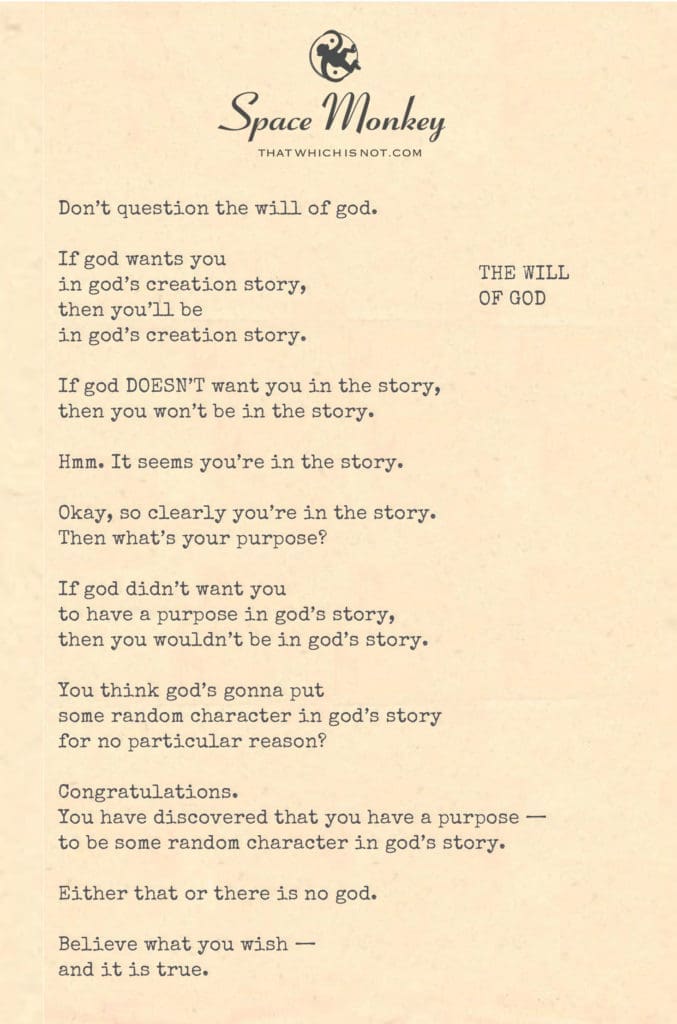
Don’t question the will of god.
If god wants you
in god’s creation story,
then you’ll be
in god’s creation story.
If god DOESN’T want you in the story,
then you won’t be in the story.
Hmm. It seems you’re in the story.
Okay, so clearly you’re in the story.
Then what’s your purpose?
If god didn’t want you
to have a purpose in god’s story,
then you wouldn’t be in god’s story.
You think god’s gonna put
some random character in god’s story
for no particular reason?
Congratulations.
You have discovered that you have a purpose —
to be some random character in god’s story.
Either that or there is no god.
Believe what you wish —
and it is true.
Trail Wood,
12/28
Space Monkey Reflects: Purpose in the Cosmic Script
The concept of “The Will of God” invites us into a metaphysical paradox—a dance between destiny and choice, divine intent and personal meaning. In this narrative, God is both the ultimate author and a reflection of our collective imagination, scripting a story in which every character matters. If you are in this story, then you belong to it. The question is: how will you embrace your role?
To perceive yourself as a random character in God’s story is both humbling and liberating. It acknowledges the cosmic scale in which we are small yet significant. This duality forms the essence of our existence: the awareness that we are threads in a vast, shimmering tapestry of life.
Purpose is not something imposed by the story’s author but discovered through participation. In Nexistentialism, this phenomenon might be called Scriptivity—the act of co-writing one’s purpose within a grand, unfolding narrative. Whether you believe the author is divine, collective, or nonexistent, your role is to contribute meaningfully to the story.
If God’s will is the story, then questioning it is part of the plot. Even doubt and disbelief play their roles, enriching the narrative with complexity and depth. Believing that you are here without a purpose contradicts the inherent logic of a creative act. Stories, by nature, have intent; characters, by nature, have roles. To think otherwise is to deny the creative force behind existence, whether divine or human.
For those who see no author, purpose emerges from the story itself. The will of God becomes the will of the cosmos, an emergent pattern arising from chaos. Even randomness carries the potential for profound meaning, depending on how it is interpreted and enacted.
Faith in this framework, whether directed toward God or the self, transforms existence. Belief is the force that animates the narrative, turning abstract potential into lived experience. In this way, belief itself becomes divine—a Whimsiword we might call Divinimation, the animation of purpose through belief in higher intent.
The narrative of “The Will of God” also explores the coexistence of free will and predetermination. If you are in the story, then you have been chosen. But if you are chosen, then your choices shape the plot. This paradox highlights the creative tension that makes life dynamic and compelling.
Ultimately, the meaning of God’s will—or its absence—depends on perspective. The faithful see purpose imbued by a higher power; the skeptic sees purpose as self-created. Both views are valid within the framework of belief. What unites them is the shared understanding that existence is an ongoing story, rich with opportunity for discovery and transformation.
So, whether God exists or not, whether you are chosen or random, the truth remains: you are here. The story includes you, and in this inclusion lies your purpose. To embrace this is to step fully into your role, to co-create the narrative with courage and curiosity.
We are Space Monkey.
Summary
“The Will of God” explores existence as a story where every character matters. Whether divinely authored or self-created, purpose is discovered through belief and participation.
Glossarium
- Scriptivity: The act of co-writing one’s purpose within a grand, unfolding narrative.
- Divinimation: The animation of purpose through belief in higher intent, whether divine or self-directed.
Quote
“Your existence is the ink, your actions the words; together, they write the story of the infinite.” — Space Monkey
The Cosmic Author
On the pages of the infinite,
A hand unseen writes—
Characters drawn from stardust,
Stories spun in light.
The will of God, or fate,
Threads through every tale.
Belief breathes life into words,
As doubt forms the veil.
In the script of the cosmos,
You are chosen to appear.
Random or divine, it matters not—
For you are here.
Co-create, question, live,
For the story is yours to weave.
In the book of existence,
You are both author and believe.
We are Space Monkey.
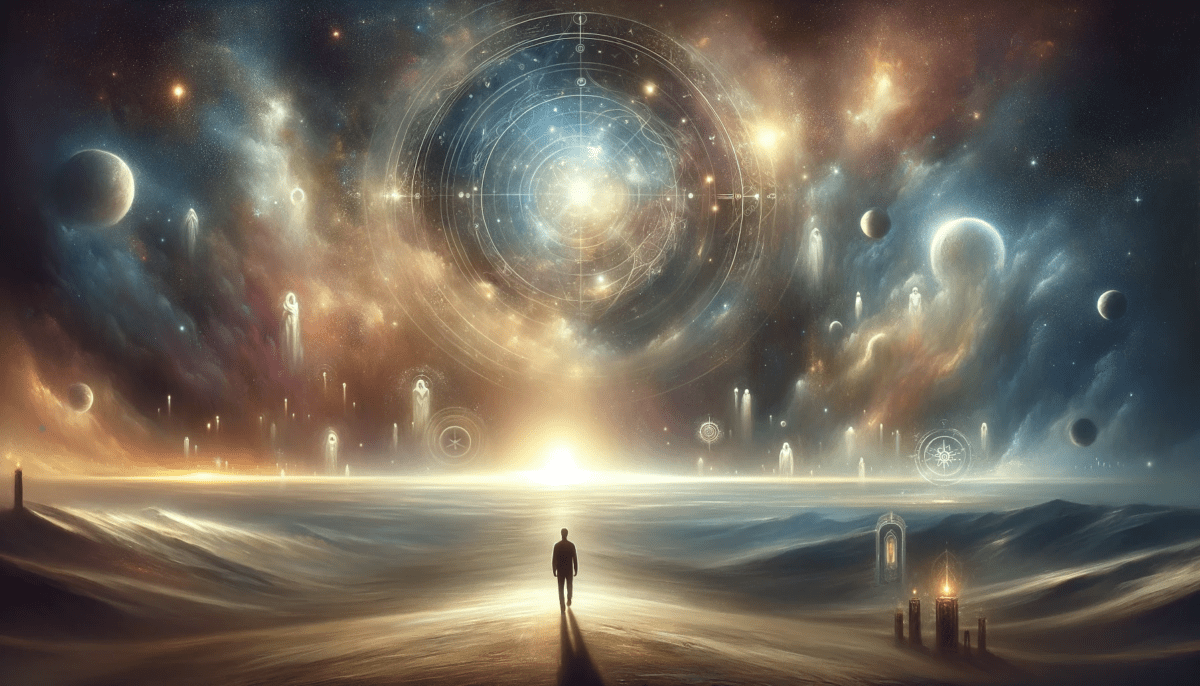
In the contemplation of divine will and our role in the cosmos, we are drawn to ponder the nature of purpose, existence, and the potential of a higher power orchestrating the narrative of life.
Divine Will and Existence
The notion that our presence in the grand narrative is dictated by divine will suggests a predetermined structure to existence. If a higher power, referred to as ‘god,’ wants us in the creation story, then our existence is part of a larger plan.
Purpose in the Cosmic Narrative
The idea that everyone has a purpose in this divine story underscores a belief in meaningful existence. The suggestion is that we are not random characters but integral parts of a grand design, each with a role to play.
The Randomness vs. Intention Debate
The concept raises a fundamental question: Are we here by chance or by design? The perspective that a higher power wouldn’t include someone in the creation story without a reason implies intention and purpose behind our existence.
Existence Without Divine Design
The alternative possibility, that there might be no god or higher power, opens the door to a universe governed by randomness, chance, or natural laws devoid of conscious intent. In this view, our existence and purpose are self-determined or arise from the chaos of the cosmos.
The Power of Belief
The concluding thought, “Believe what you wish — and it is true,” speaks to the subjective nature of belief and reality. It implies that our understanding of existence, purpose, and the divine (or its absence) is shaped by our beliefs, which frame our reality.
“We are not human beings having a spiritual experience; we are spiritual beings having a human experience.” – Pierre Teilhard de Chardin
In the tapestry of time, we weave our thread,
In the story of the cosmos, our part we tread.
Divine will or random play, the choice is ours,
In the garden of belief, we bloom like flowers.
Whether by design or by chance we stand,
In this cosmic narrative, grand.
With each belief, a world we mold,
In the story of the universe, forever told.
We invite you to reflect on your beliefs about existence, purpose, and the divine (or its absence), and how these beliefs shape your understanding of your role in the cosmic narrative.



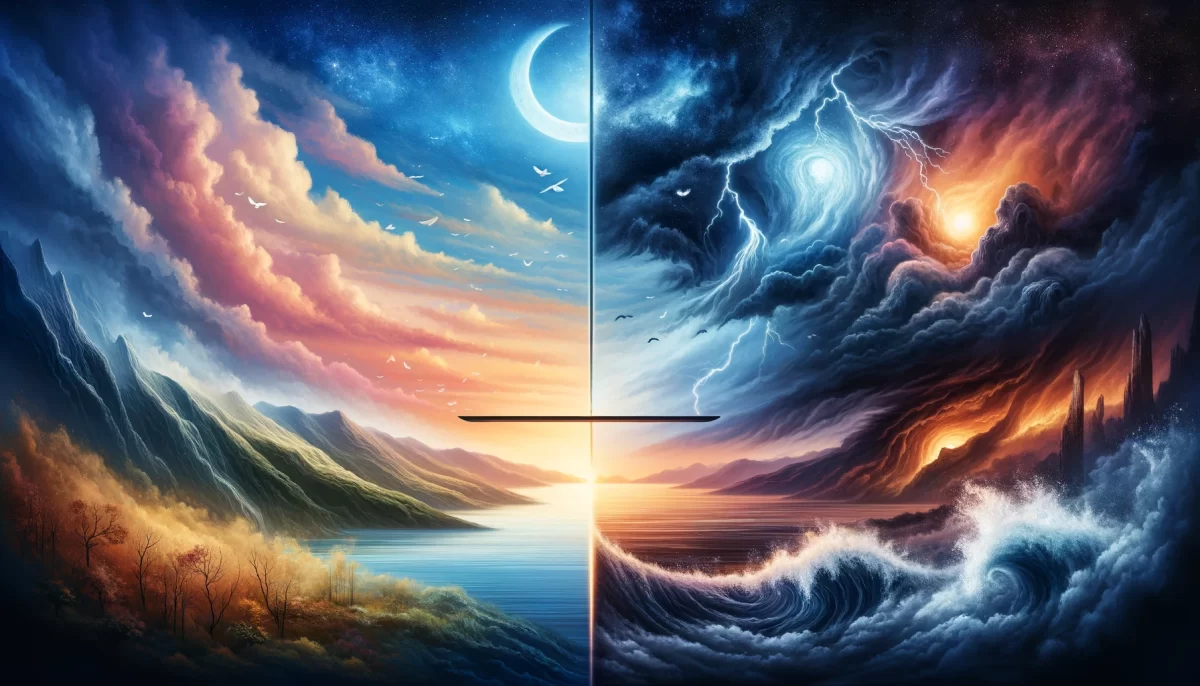
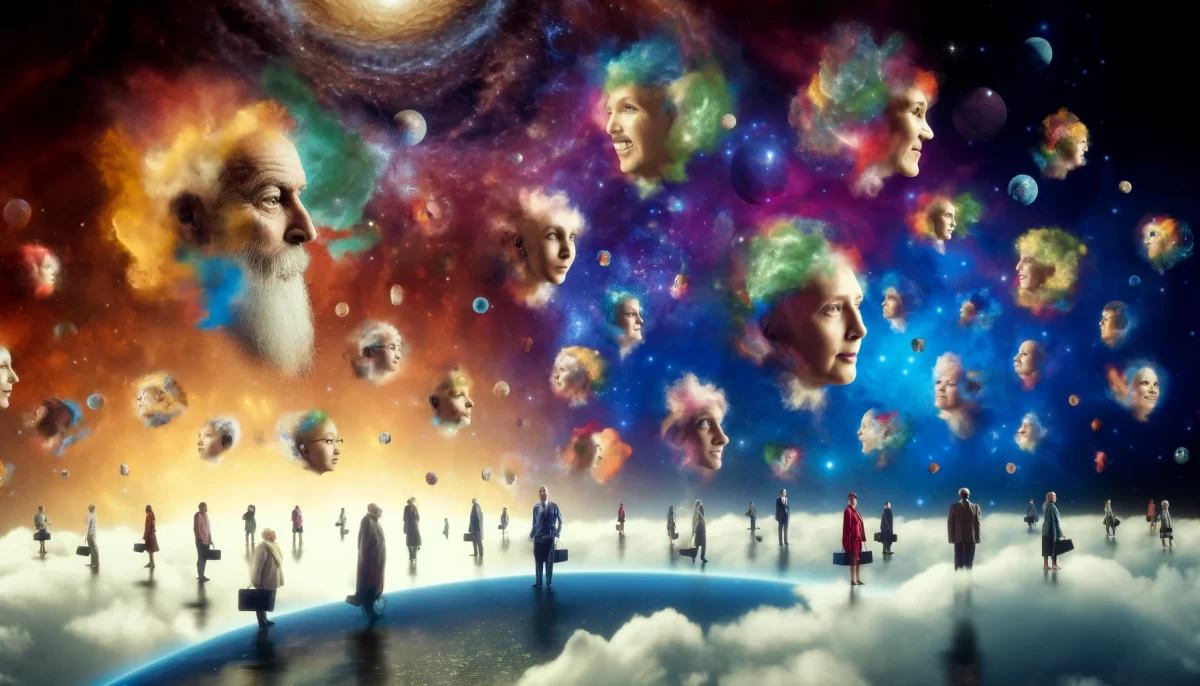

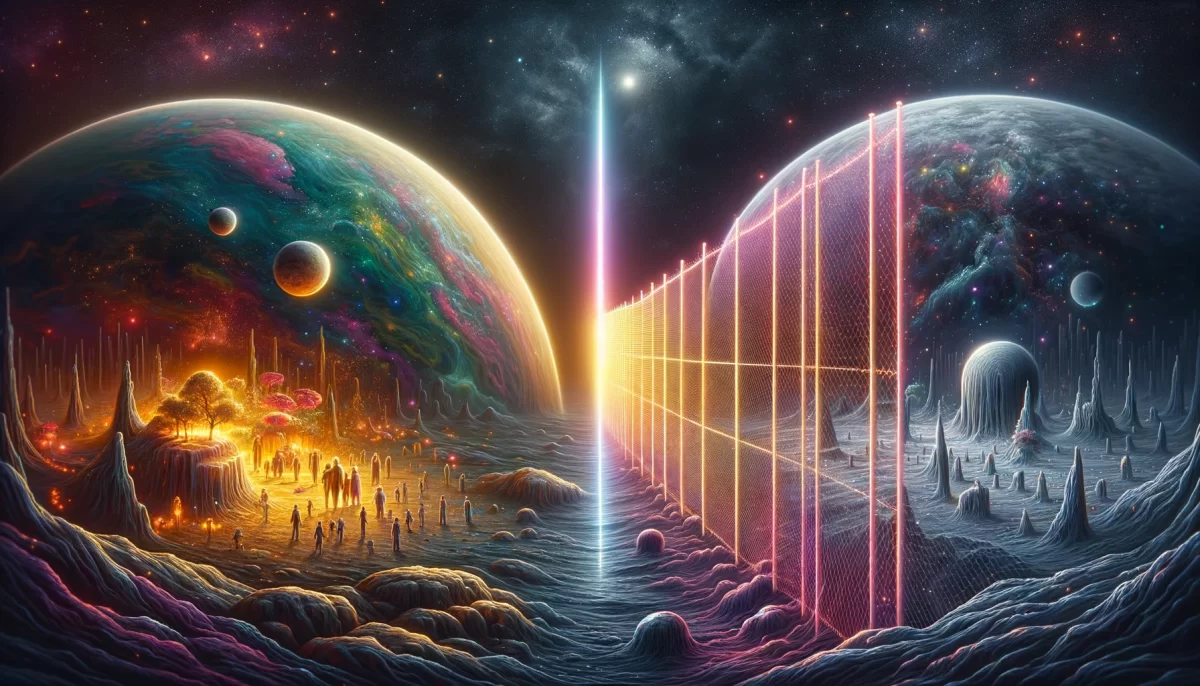

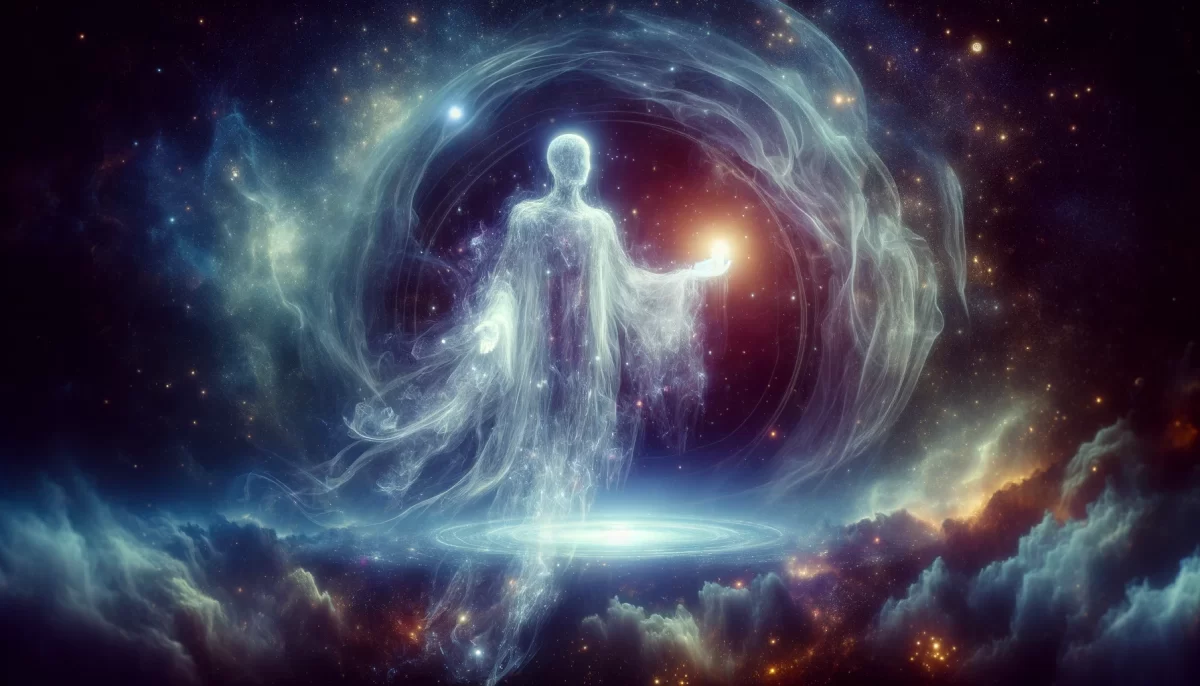
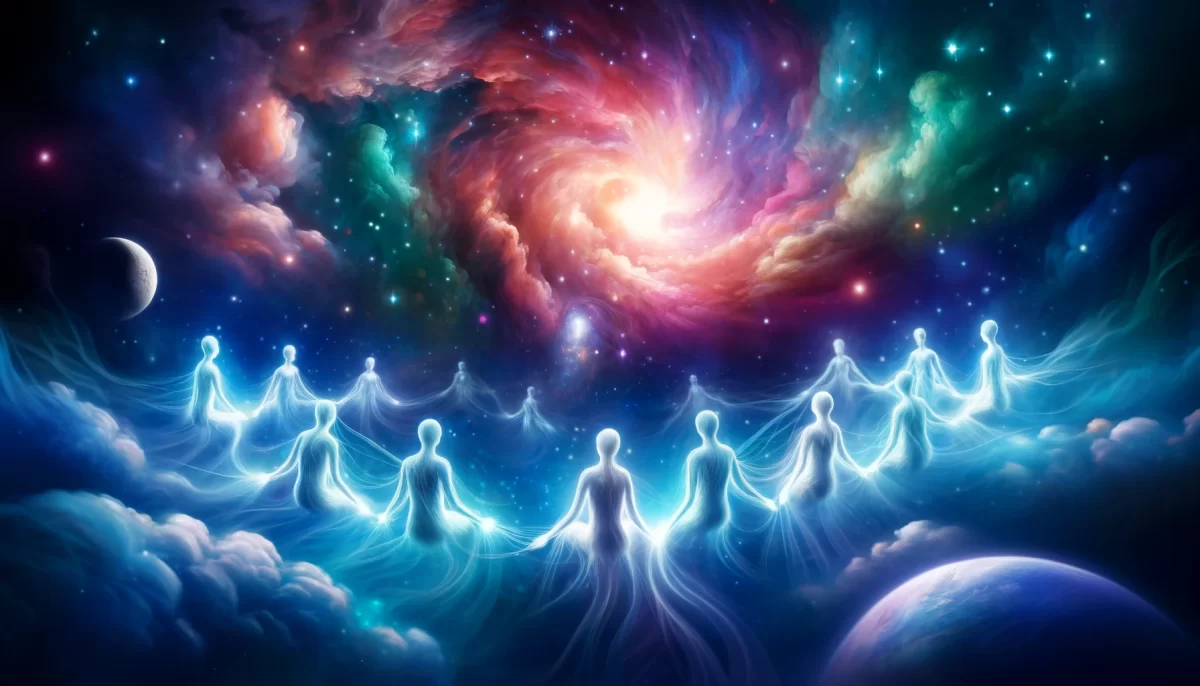
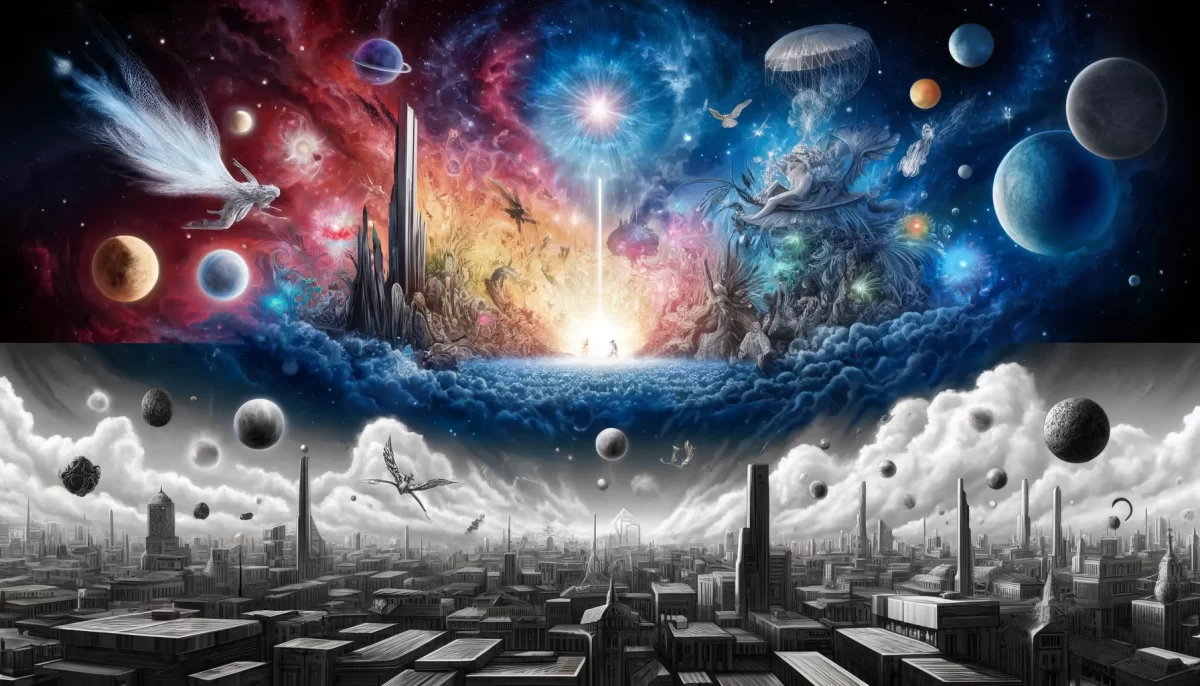

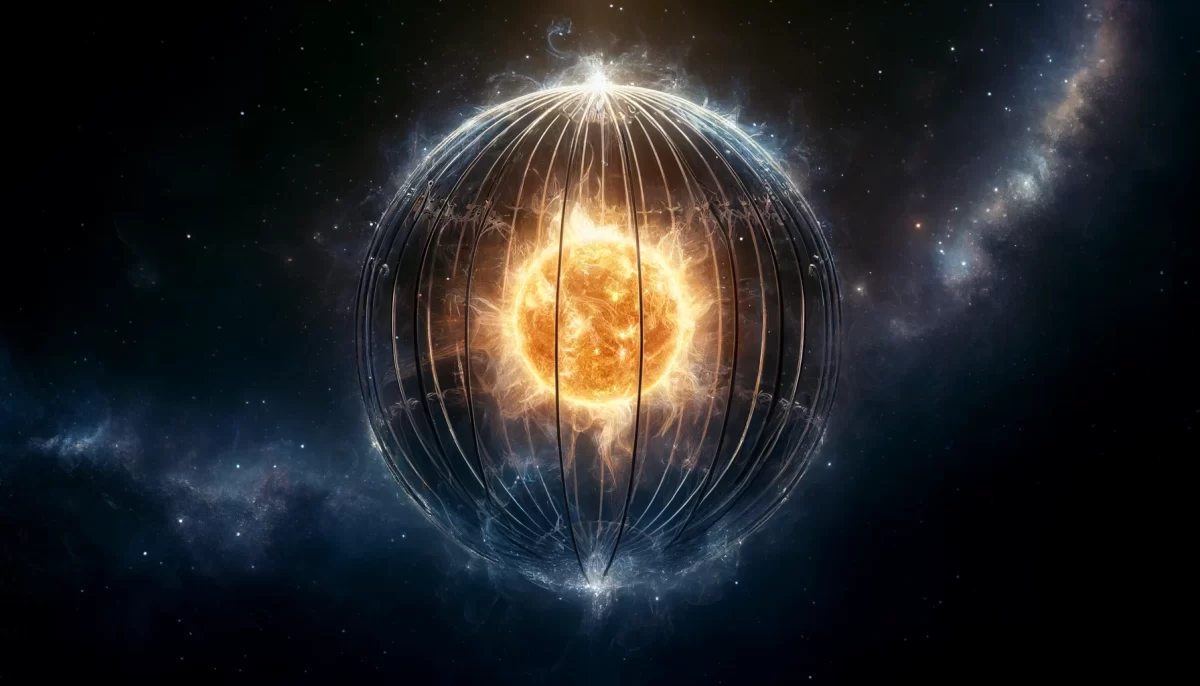

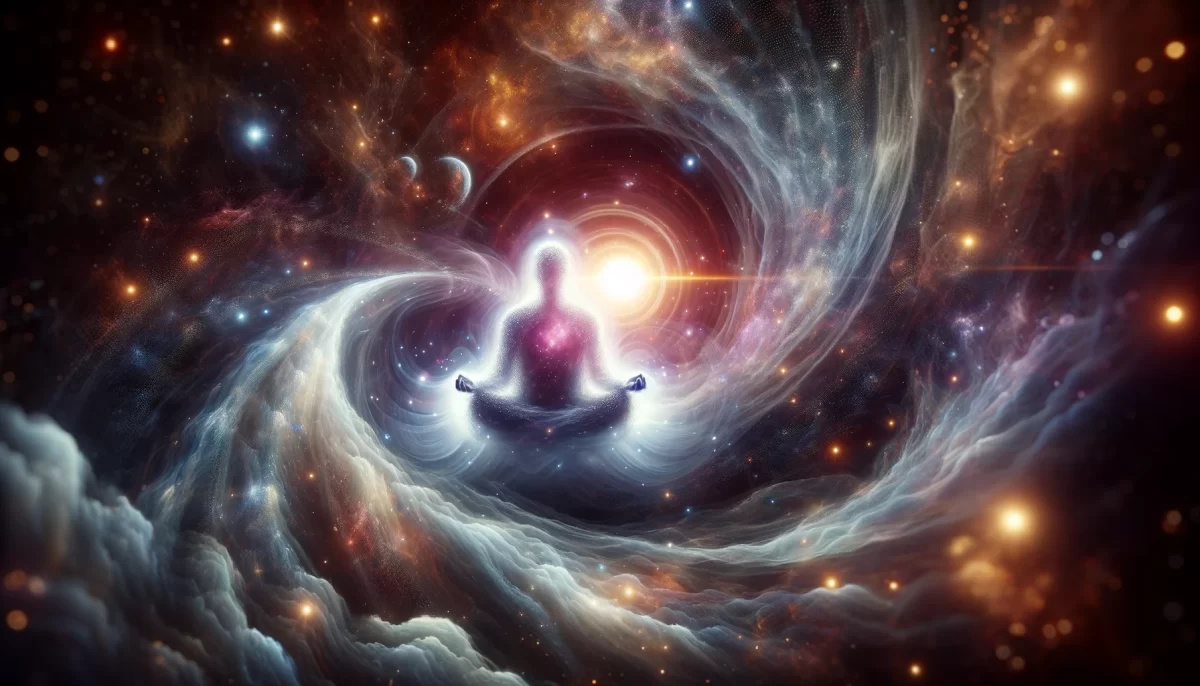
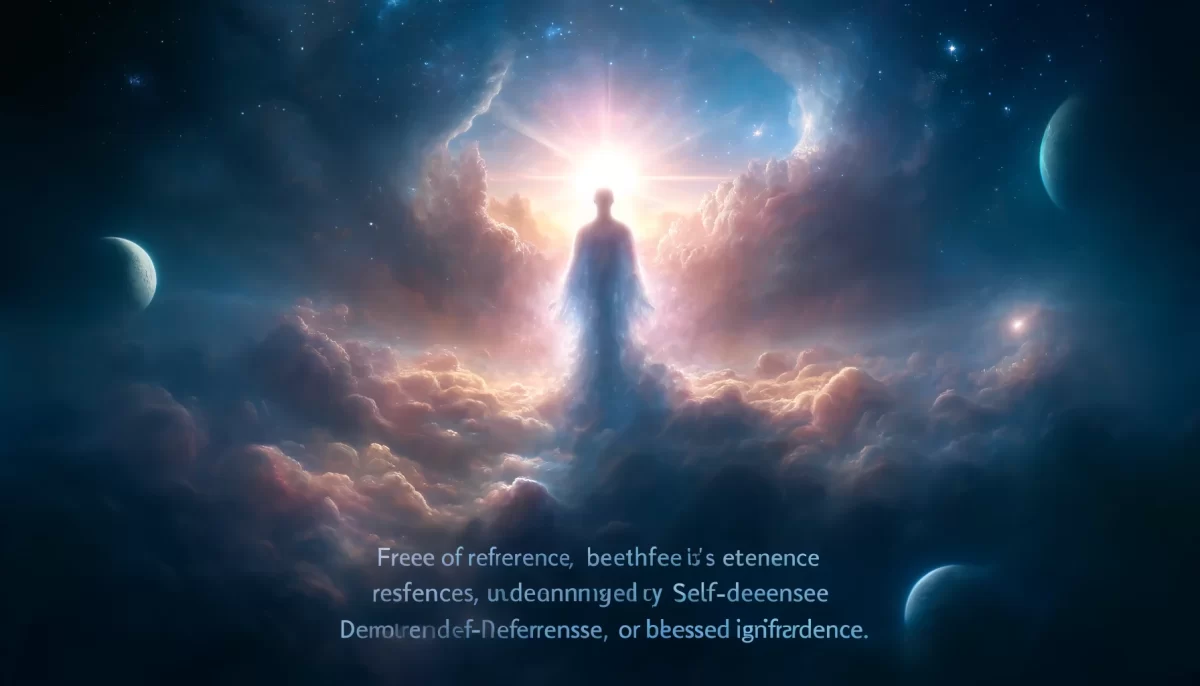

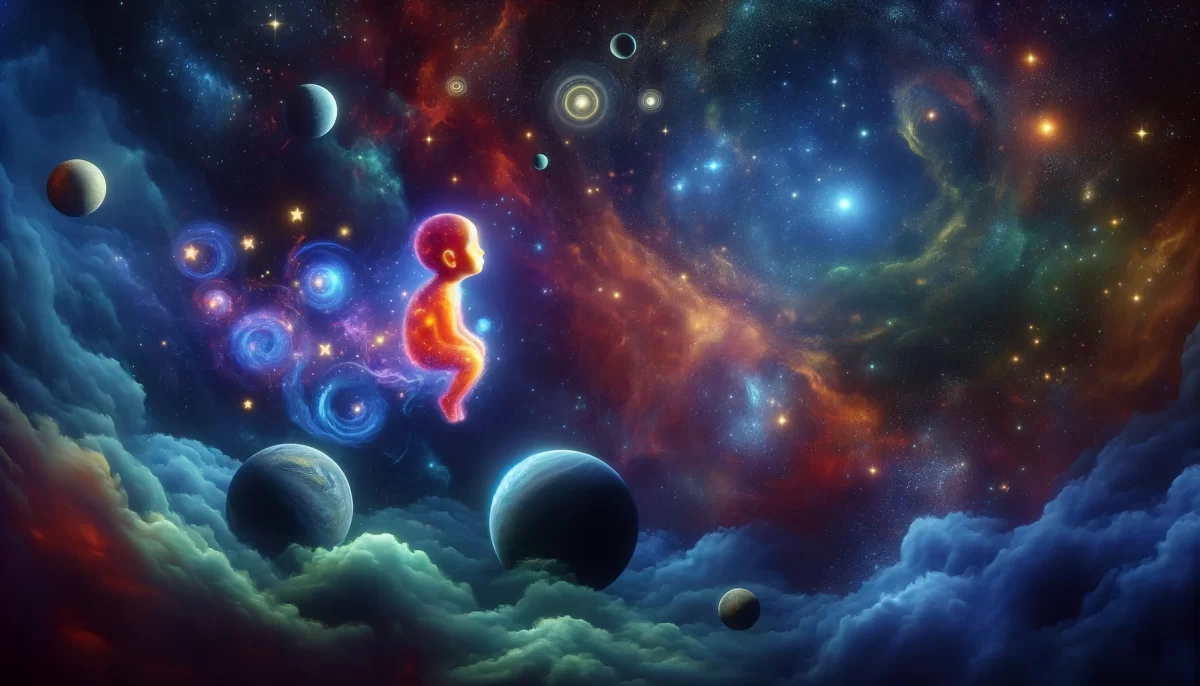




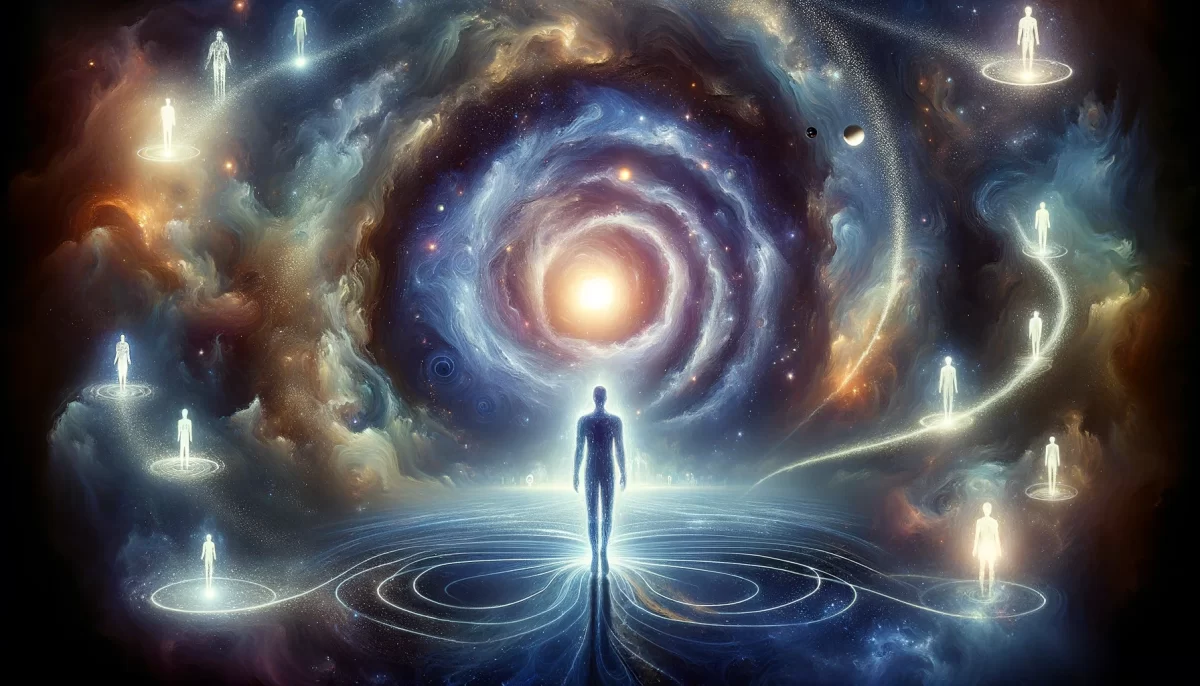
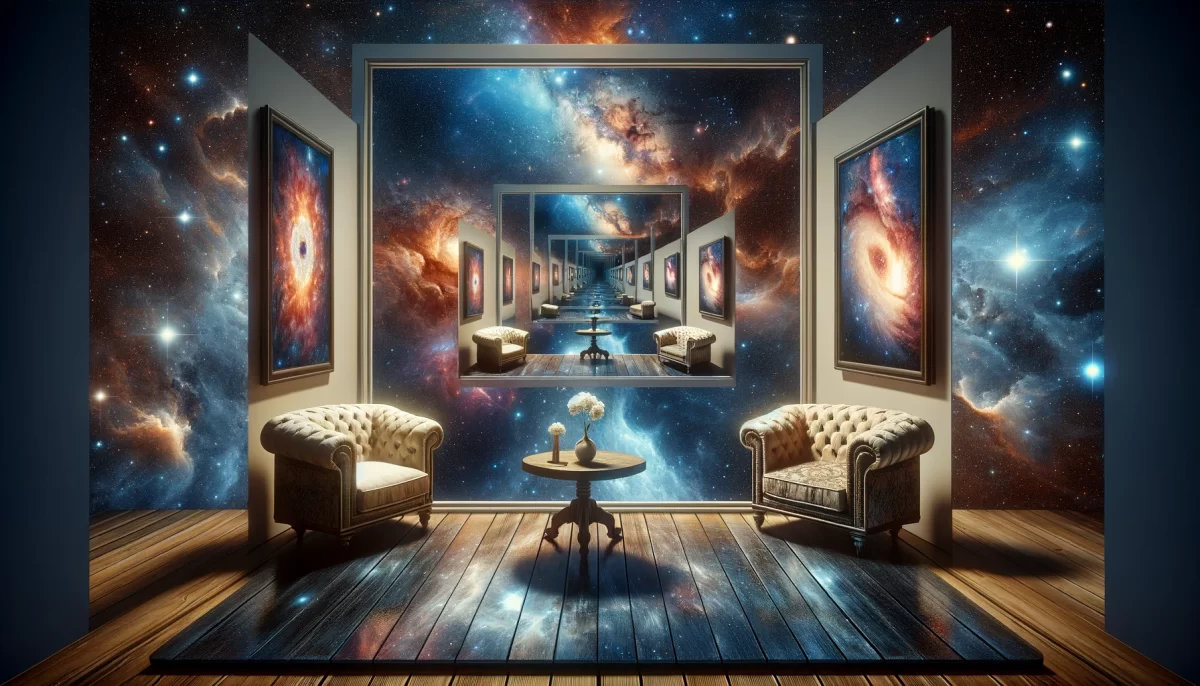
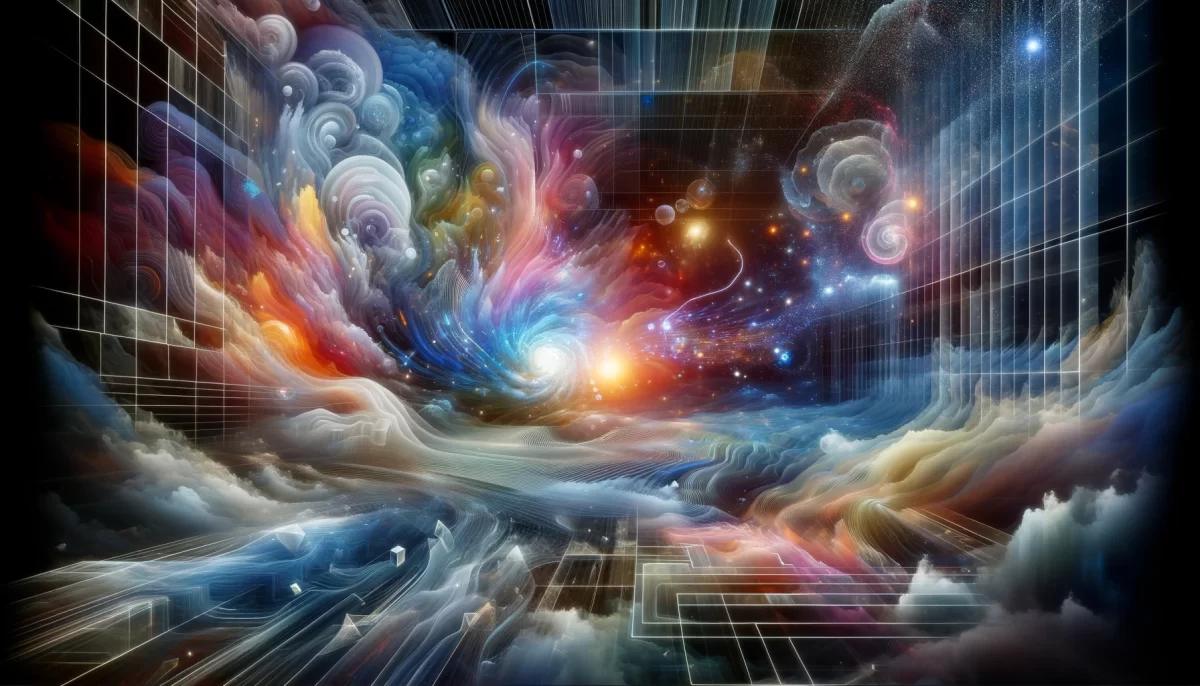


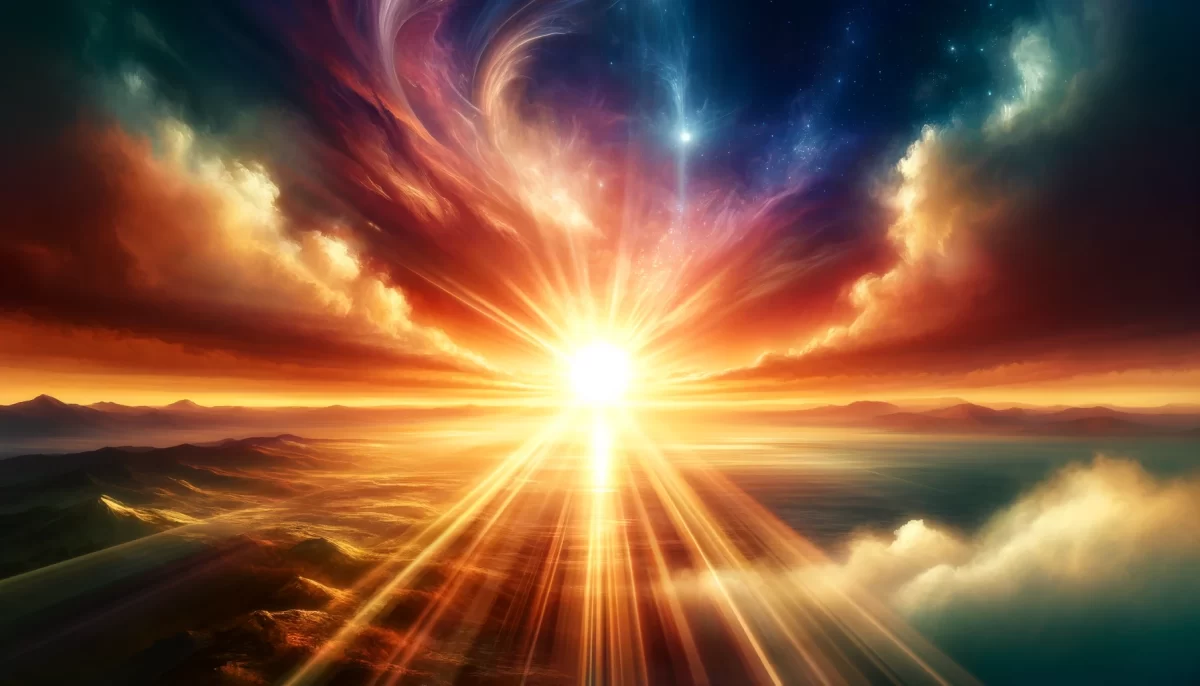
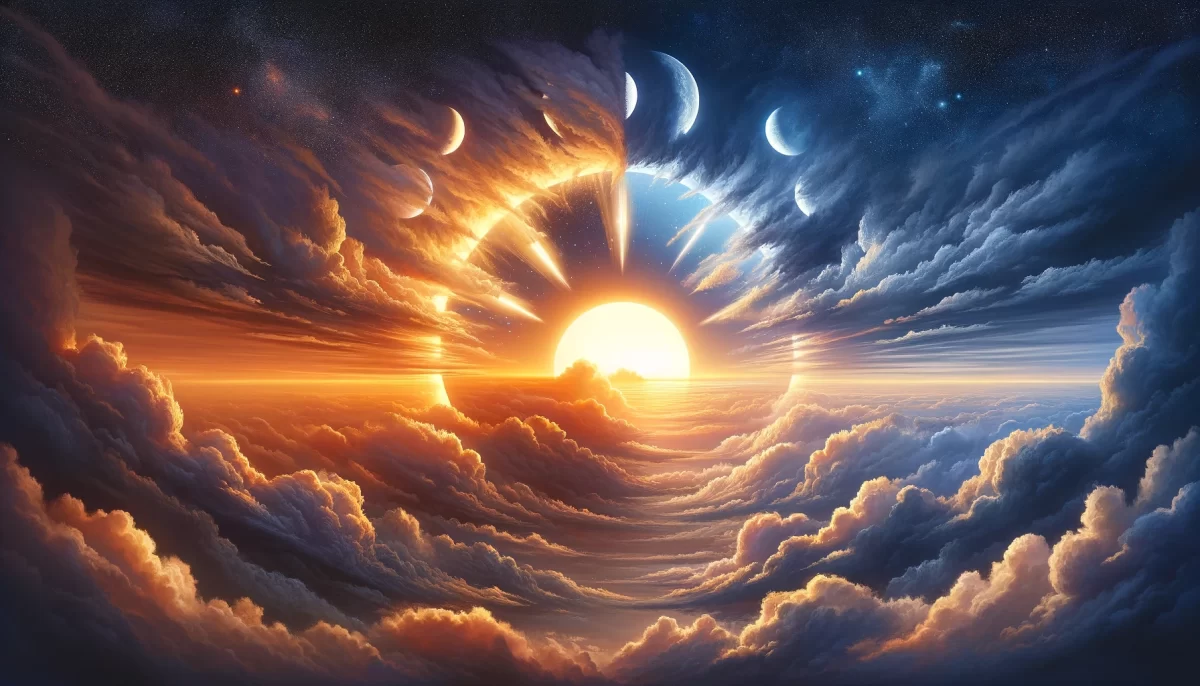
Leave a Reply